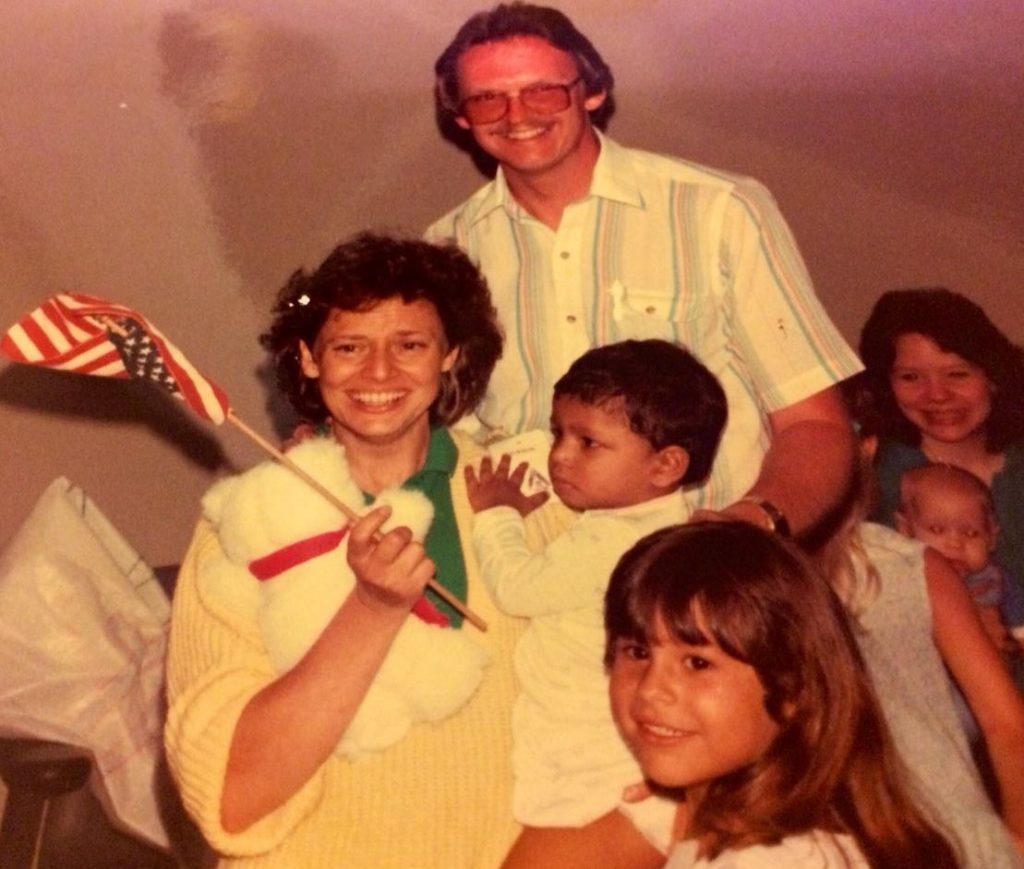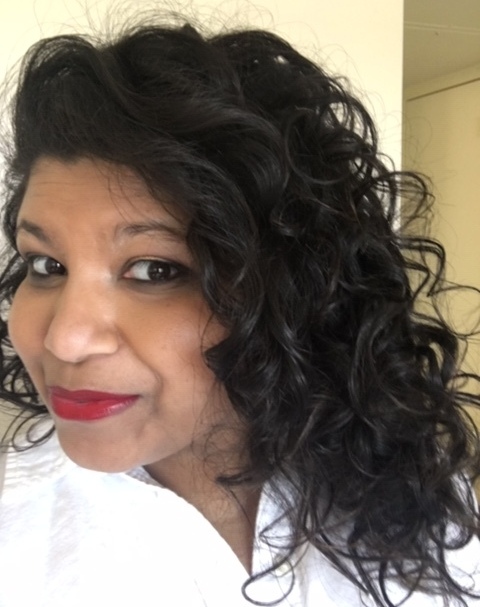
As an Indian adoptee raised by white parents in the U.S., I have gradually had to teach myself what it means to be not only Indian but a brown girl. I was raised in a predominantly white town and was not exposed to racial mirrors. I’ve often felt like I’m appropriating my own culture anytime I attempt to take part in Indian customs or traditions.
There’s a lack of confidence and ownership. I feel like an imposter and that others will sense it. I hate feeling this way and I hate that I’ve allowed my fear of not “fitting in” prevent me from participating in the culture I was born into. There is a severe sense of loss: loss of language, food, cultural norms, faith and most importantly, loss of people who look like me.
I’ve always had thick, coarse, curly hair. As a child, I questioned if I was truly Indian because the other Indians I met had straight, shiny hair, lighter skin, and looked nothing like me. As I got older, I learned I have a traditional South Indian, and more specifically, a Keralite look. The realization that—physically at least—I fit in with a group of people filled me with indescribable joy.

To know there was somewhere in the world where I wouldn’t look different from everyone else gave me hope and assured me that I belong. My white parents, while very loving, had no idea what to do with my unruly curls. Brushing my curls often left me in tears, and half the hair ties my mom attempted to use in my hair would break.
I kept my curls pulled back in a ponytail until sixth grade. The first day I wore my natural curls down, the teacher told me I looked like I had stuck my finger in an electric socket in front of the entire class. I was mortified and quickly lost the confidence to wear to my hair down again.
[Read related: A Narrative on Coming to Terms with My Hairy Reality]
Throughout the years I’ve had a love-hate relationship with my curls. I envied the girls with straight hair who could run their fingers through it and every strand seemingly fell into its perfect place. People called my hair frizzy, wild and big which are not inherently positive adjectives to hear as I was developing my self-image. When I straightened my hair people would tell me how beautiful it looked but I never received compliments when it was curly. When I was 26, I met my now fiancé who prefers curly hair. He tells me he likes my curls almost every day. I now wear my natural curls almost every single day but I’m still learning how to care for them.
I recently found a Facebook group called “Indian Curl Pride,” which is administered by Ashba Botanics, the first brand dedicated to curly in India. It introduced me to the Curly Girl Method for Indian hair. I watched with reservations as members posted photo after photo of gorgeous curls—curls of which I found myself envious. I’ve slowly begun to implement bits of the curly hair care regimen into my styling routine and can already notice a difference.
My curls are more defined and moisturized and people are noticing. Getting compliments on my curls, that doesn’t only come from my fiancé, has been a huge motivator to keep up with the intense routine and dare I say lifestyle change. I’ve purchased CG friendly products, a satin bonnet and scrunchie for sleeping, and have committed to wrapping my dripping wet hair in a T-shirt instead of ringing it out with a towel to prevent frizz.
I’ve still got a long way to go but I’m grateful to the women in the group who share their wisdom with me. Although it hurts immensely that I couldn’t learn to care for my hair from my birth mother, I like to think that some of the things I’ve learned would have been lessons she would have taught me if she could have.




